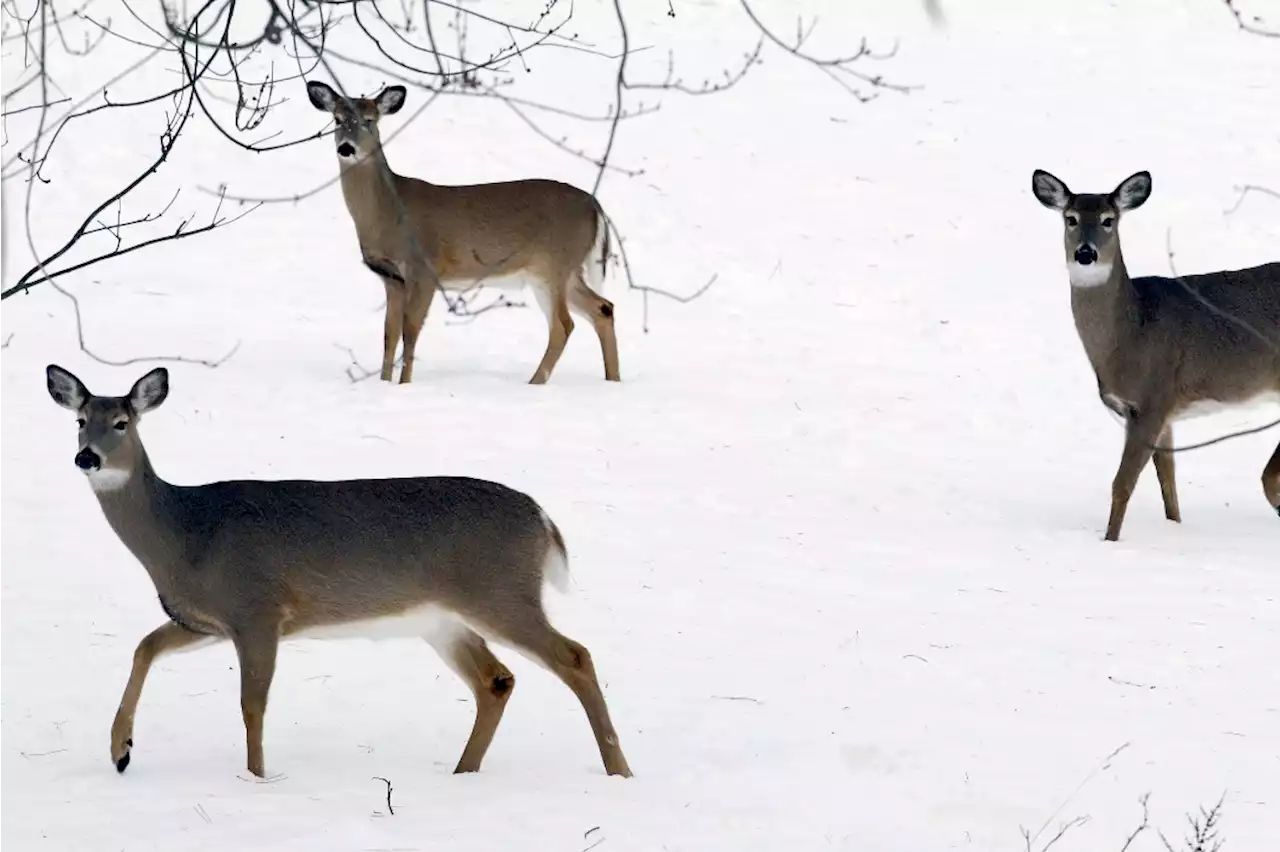The omicron variant was detected in nasal swabs from seven of 68 Staten Island deer tested between Dec. 13 and Jan. 31, according to the study.
The highly infectious variant also hit the white-tailed deer population on Staten Island, the most suburban of the city’s five boroughs, according to a
It was already known that deer can catch COVID-19, after earlier variants were found in white-tailed deer. But the Staten Island study is the first to find evidence of the omicron variant in deer or any wild animal population, Suresh Kuchipudi, a professor of virology at Penn State who led the research team, said Tuesday.
Although omicron has been found to cause generally milder COVID-19 symptoms in humans than previous versions of the virus, scientists worry that Kuchipudi said the spillover of omicron from humans to deer sparks fears that new and possibly vaccine-resistant mutations could evolve undetected in non-human hosts.
Kuchipudi also noted that one of the infected deer in the study had COVID-19 antibodies from a previous infection, an indication that deer, like humans, can experience breakthrough cases.
